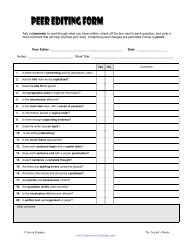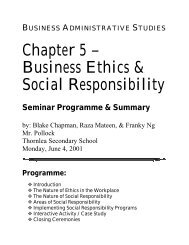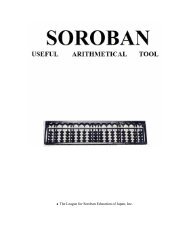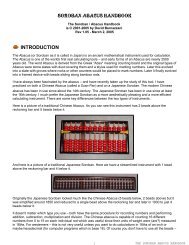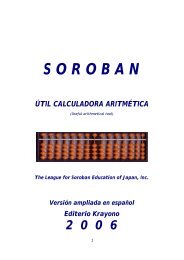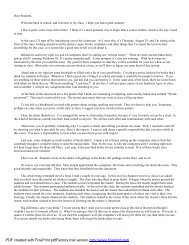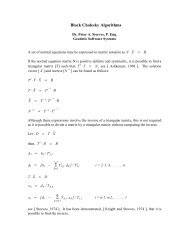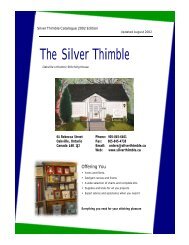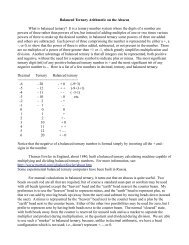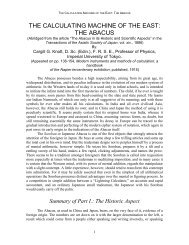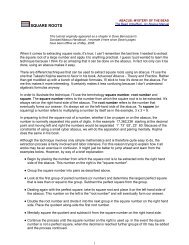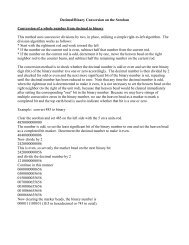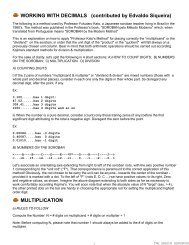Sexing Political Identities-Nationalism as Heterosexism.pdf
Sexing Political Identities-Nationalism as Heterosexism.pdf
Sexing Political Identities-Nationalism as Heterosexism.pdf
Create successful ePaper yourself
Turn your PDF publications into a flip-book with our unique Google optimized e-Paper software.
drama’ but they recognize that battleeld action is only the tip of the iceberg.<br />
Leadership personalities, gender expectations, popular sentiments, historical<br />
animosities, political alignments, diplomatic protocols, media politics, and<br />
normative principles are some of the multiple variables upon which battleeld<br />
outcomes depend. There is no xed pattern in how gender shapes the most<br />
pertinent variables and their interaction in a specic c<strong>as</strong>e. But we can no<br />
longer pretend that heterosexist identities and ideology are irrelevant to these<br />
practices and the reproduction of identity-driven conicts.<br />
Historically, and in most countries today, women and homosexuals have<br />
been excluded from military service. Recent challenges to this exclusion have<br />
exposed how heterosexist premises underpin hegemonic m<strong>as</strong>culinity. As a site<br />
of celebrated (because non-sexual) homosocial bonding, the military affords<br />
men a unique opportunity to experience intimacy and interdependence with<br />
men, in ways that heterosexist identities and divisions of labor otherwise<br />
preclude. These points are central to Carol Cohn’s recent article on ‘gays in the<br />
military,’ where she brilliantly reveals and analyses the ‘chain of signication:<br />
military, real man, heterosexual’ and how uncloseted homosexuality disrupts<br />
this foundational chain (Cohn 1998: 146). Her conclusion captures a variety<br />
of points and echoes arguments from this article:<br />
An important attraction of the military to many of its members is a guarantee<br />
of heterosexual m<strong>as</strong>culinity. That guarantee is especially important because the<br />
military provides a situation of intense bonds between men, a much more<br />
homosocial and homoerotically charged environment than most men otherwise<br />
have the opportunity to be in. In that the military guarantees their manhood,<br />
men are allowed to experience erotic, sexual, and emotional impulses that they<br />
would otherwise have to censor in themselves for fear of being seen (by others<br />
or themselves) <strong>as</strong> homosexual and therefore not real men. They are not only<br />
escaping a negative – imputations of homosexuality – but gaining a positive,<br />
the ability to be with other men in ways that transcend the limitations on male<br />
relationships that most men live under in civilian life.<br />
(1998: 145)<br />
Women <strong>as</strong> Societal Members of Heterosexist Groups<br />
This category extends our mapping of gender beyond the immediate context<br />
of nationalist struggles. It reminds us that women are not homogeneous or<br />
typically united, but are multiply located and participate in heterosexist<br />
hierarchies that oppress ‘other’ women. <strong>Heterosexism</strong> insists that women bond<br />
not with each other but with men and that women place their childbearing<br />
capacity under the control of male-dominated élites, in service to group<br />
reproduction through heteropatriarchal family forms and social relations.<br />
States structure family forms and policies, but these are also inuenced by the<br />
beliefs and practices of individuals. At the same time, individuals, families<br />
52 International Feminist Journal of Politics



